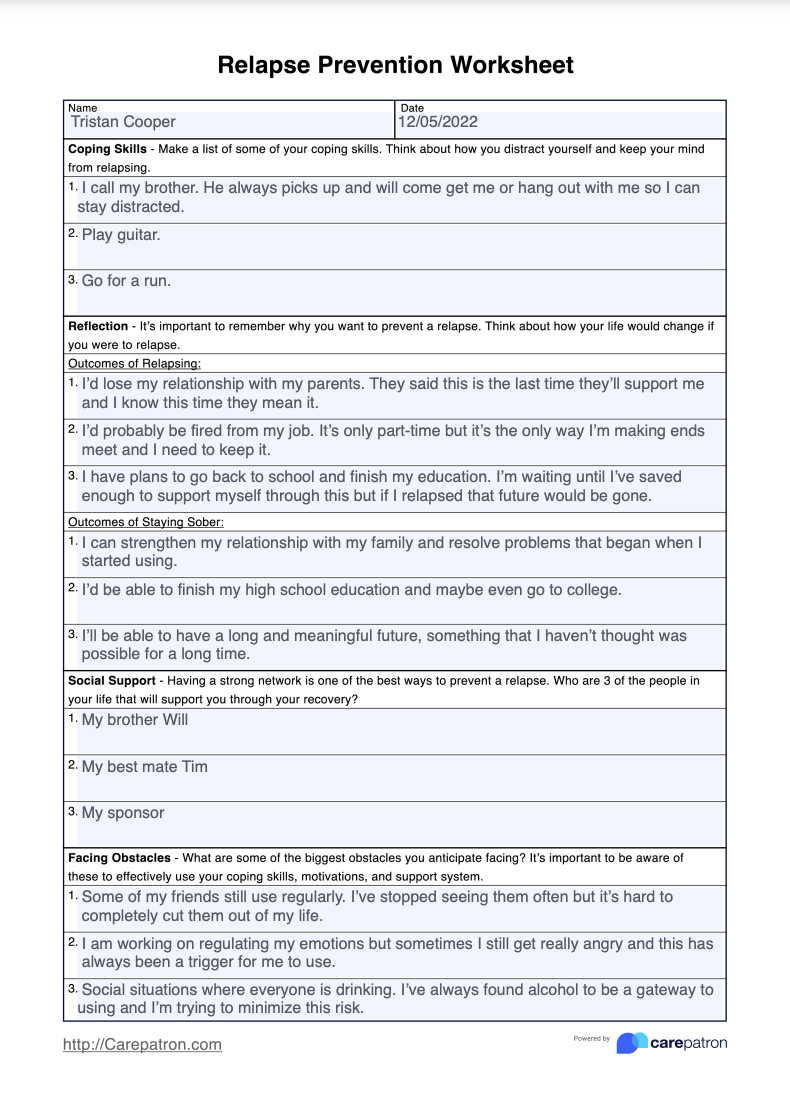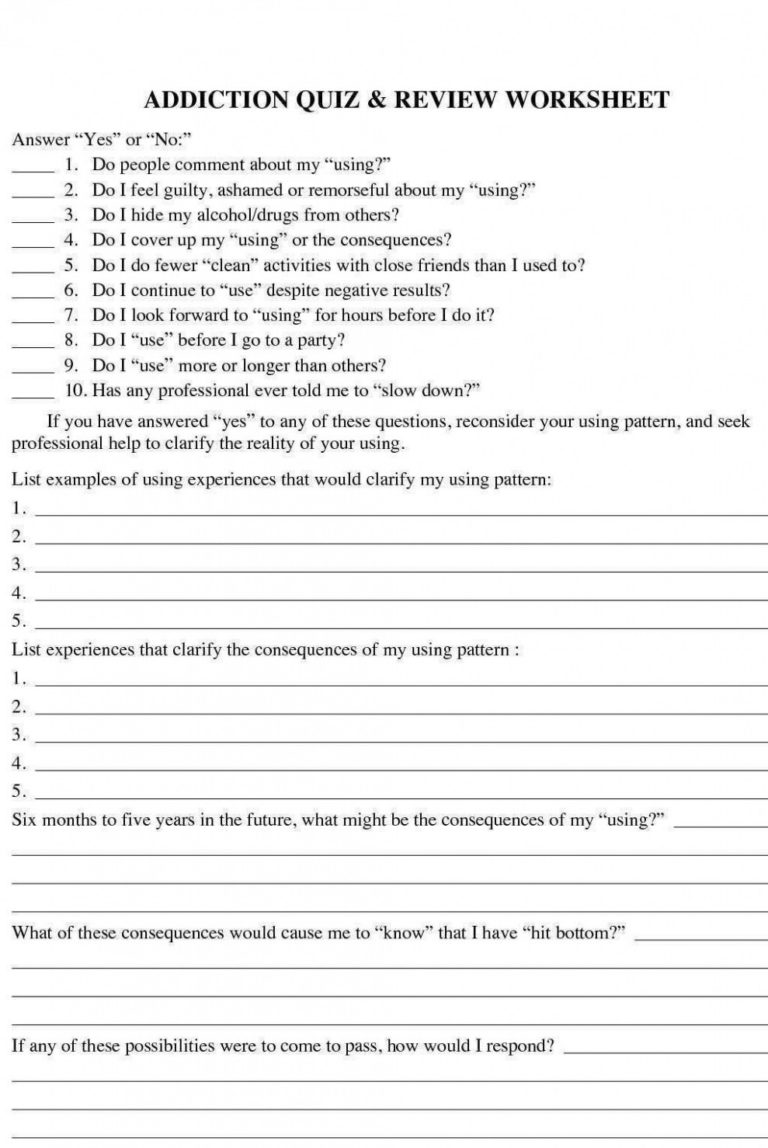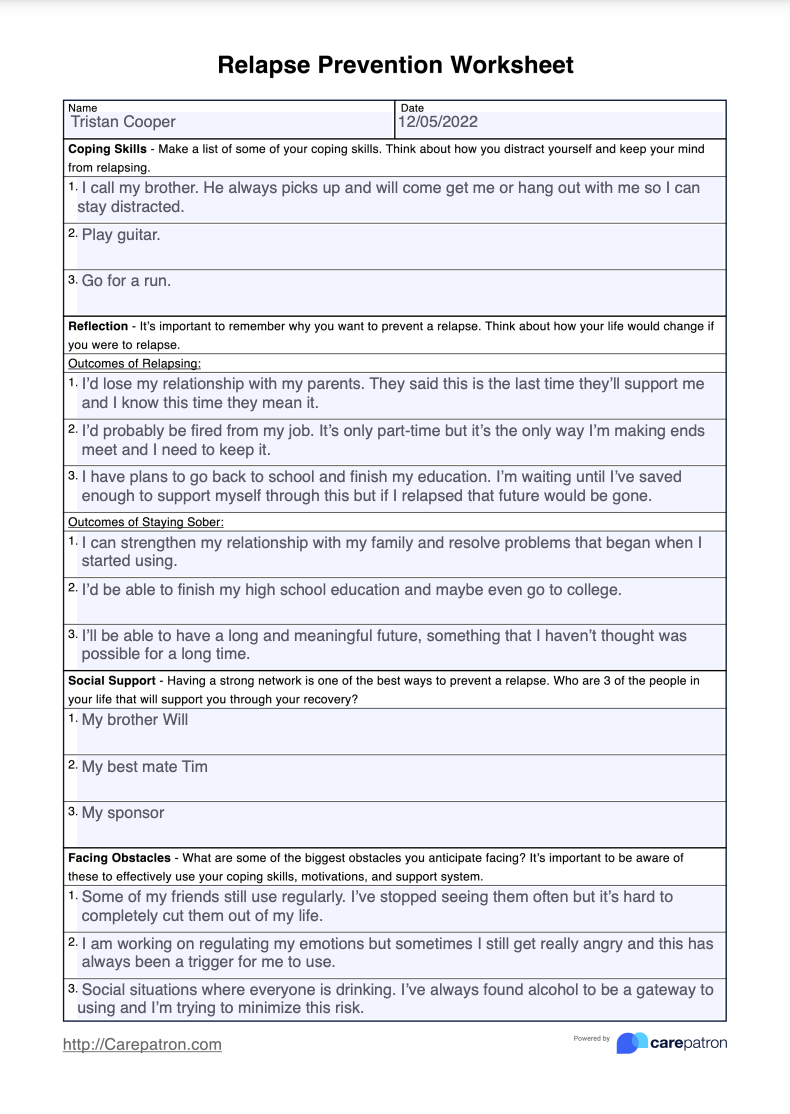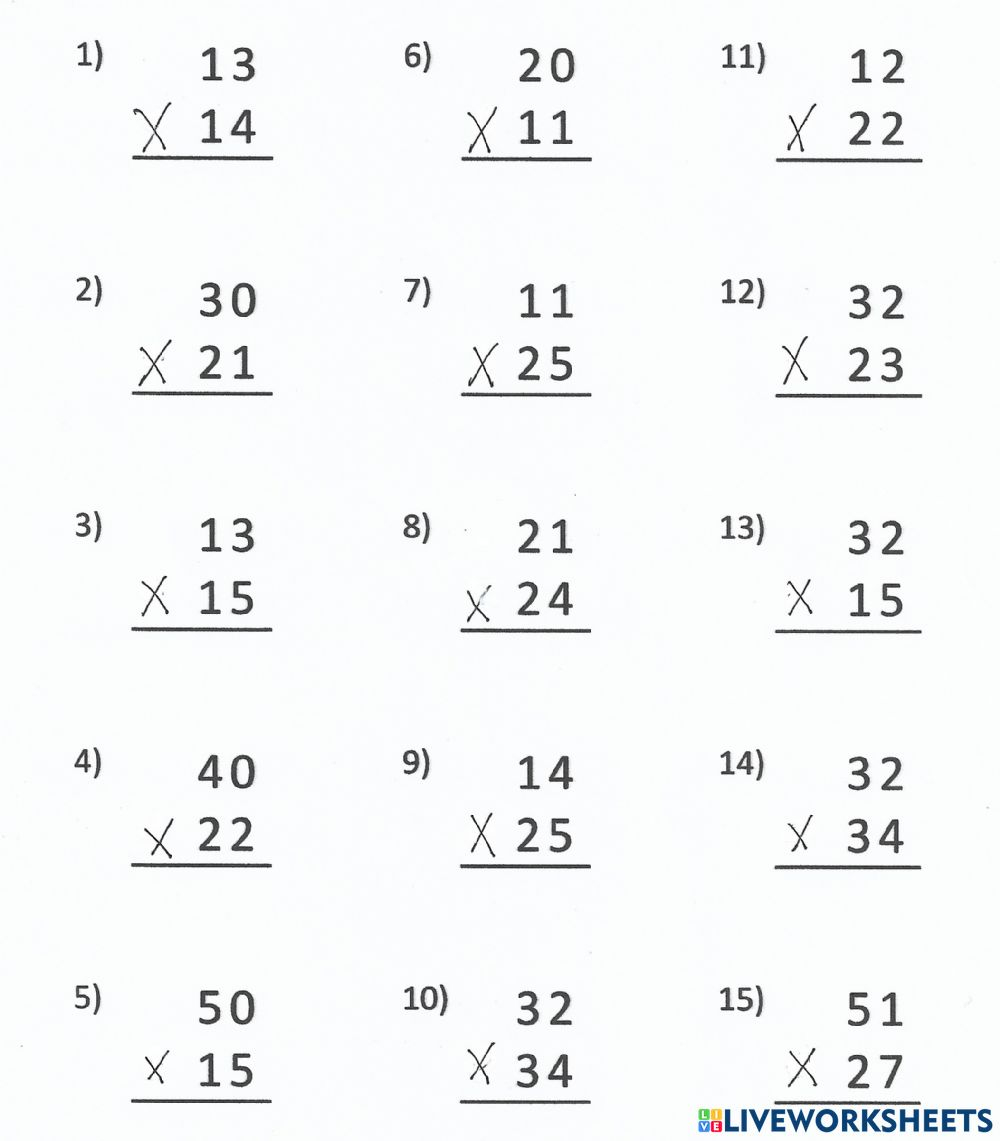5 Essential Worksheets to Prevent Relapse

Overcoming addiction is a monumental task, often fraught with the challenge of relapse. Prevention of relapse can be reinforced through various therapeutic tools, one of the most effective being worksheets. These structured exercises help individuals identify triggers, manage cravings, and maintain sobriety. Here, we will delve into five essential worksheets designed to prevent relapse, each serving a unique purpose in the journey toward recovery.
1. Identifying Triggers Worksheet

One of the first steps in preventing relapse is understanding what might trigger a return to substance use. A Triggers Identification Worksheet helps individuals pinpoint these triggers by:
- Listing past situations, emotions, or people associated with substance use.
- Noting feelings or thoughts during these times.
- Identifying patterns or common themes among triggers.
Here's a sample of how a trigger worksheet might look:
| Trigger | Emotion/Thought | Frequency |
|---|---|---|
| Seeing an old friend | Nostalgia, Guilt | Occasional |
| Late-night work | Stress, Exhaustion | Regular |

📌 Note: While completing this worksheet, be honest with yourself; understanding your triggers is crucial for relapse prevention.
2. Coping Skills Worksheet

Once triggers are identified, the next step is developing effective coping strategies to manage them. This worksheet includes:
- Exploring different coping mechanisms like deep breathing, exercise, or engaging in a hobby.
- Ranking the effectiveness of each coping strategy in reducing the desire to use.
An example format could be:
| Trigger | Coping Strategy | Effectiveness (1-5) |
|---|---|---|
| Stress at work | Meditate for 10 minutes | 4 |
| Loneliness | Call a friend | 3 |
By systematically trying different approaches, individuals can find what works best for them, reducing the risk of relapse significantly.
3. Daily Planning Worksheet

A structured daily routine can be a powerful tool against the unpredictability of relapse. The Daily Planning Worksheet encourages:
- Time management to avoid idle time, a known trigger for many.
- Incorporating activities that promote well-being and reinforce sobriety.
- Self-reflection at the end of the day to evaluate emotional and mental states.
Here’s how one might organize their daily planning:
| Time | Activity | Purpose |
|---|---|---|
| 6:30 AM - 7:00 AM | Yoga/Exercise | Start the day with physical activity for stress relief. |
| 7:30 AM - 8:30 AM | Breakfast and Meditation | Enhance mental clarity and nutritional intake. |
🗒️ Note: Flexibility in your daily plan is essential; life isn't always predictable, so adjust as needed.
4. Recovery Support Worksheet

Isolation can foster relapse; hence, maintaining a robust support system is crucial. This worksheet helps individuals:
- List their support network, including friends, family, therapists, and support groups.
- Plan regular interaction with these supports.
- Develop a plan for when feeling isolated or vulnerable.
The setup could look like this:
| Support Name | Contact Method | Frequency of Contact |
|---|---|---|
| John (Sponsor) | Phone Call | Weekly |
| Family Support Group | Meeting | Bi-weekly |
5. Relapse Prevention Plan Worksheet

Perhaps the most comprehensive tool, the Relapse Prevention Plan combines elements from all previous worksheets, creating a roadmap for long-term sobriety. It includes:
- A detailed analysis of personal triggers and coping strategies.
- Action steps for immediate intervention upon recognizing signs of relapse.
- Long-term goals and the vision for a sober life.
- Regular updates to keep the plan relevant.
Here is an excerpt from a possible Relapse Prevention Plan:
| Trigger | Warning Signs | Immediate Action |
|---|---|---|
| High-Stress Work Environment | Increased Irritability | Seek out a friend or therapist for support |
| Loneliness | Withdrawal from Social Activities | Schedule a meetup or call a support group |
The journey towards sustained sobriety is not linear; it requires constant vigilance, self-awareness, and proactive steps. These five worksheets serve as essential tools in the recovery arsenal, providing structured guidance and support to navigate the challenges of addiction recovery. By integrating these worksheets into daily life, individuals can better understand their triggers, develop effective coping strategies, plan their days to avoid idle time, and maintain a strong support network, all of which contribute significantly to preventing relapse.
In closing, the process of recovery is unique to each individual, and while these worksheets provide a framework, personal adaptation and commitment are key. Through continuous practice, self-reflection, and support, one can cultivate a life where sobriety becomes not just a goal, but a sustainable reality.
How often should I use these worksheets?

+
It’s beneficial to use them regularly, especially during the early stages of recovery. As you progress, they can be revisited when needed or when you feel at risk of relapse.
Can these worksheets be used for any type of addiction?

+
Yes, these worksheets are designed to be versatile and can be adapted for any substance or behavior-related addiction, provided you personalize the triggers and coping strategies to your specific situation.
What if I don’t have a strong support system?

+
Recovery can still be achieved. Look for community support groups, online forums, or therapy to build a network. The support worksheet helps identify and plan for these resources.



